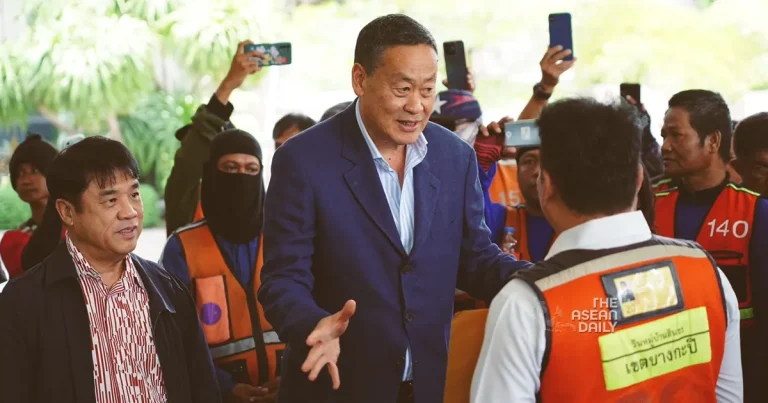14-9-2023 (BANGKOK) Recent political developments in Thailand have ushered in a period of considerable upheaval and transformation. Just 100 days after the May general election, which was marked by months of political wrangling, Thaksin Shinawatra, the de facto leader of the Pheu Thai Party and former prime minister, returned to Thailand from exile on August 22. However, his return was met with immediate custody and sentencing by the Supreme Court for offenses he was found guilty of during his time in exile.
The subsequent events in Thai politics can be seen as a calculated move or a risky gambit, akin to a hostage swap. Srettha Thavisin of Pheu Thai was elected Prime Minister, despite his party finishing second in the May election, with Thaksin receiving a royal commutation of his sentences from eight years down to just one year, a mere 10 days later.
On the surface, it may appear that the status quo remains largely unchanged. Srettha’s ascent to power was supported by a coalition of 11 parties, including the military-backed Palang Pracharath and United Thai Nation, as well as senators closely affiliated with General Prayut Chan-o-cha. The fact that nine ministers from the Prayut administration now serve under Srettha suggests a continuation of the existing power dynamics.
However, beneath the surface, a significant transformation is taking place within the ruling structures of Thailand, representing the most substantial realignment among the Thai elite in the past two decades.
Once seen as adversaries, Pheu Thai now serves as a buffer for the conservative establishment against demands for sweeping reforms from progressive forces like the Move Forward Party (MFP) and the pro-democracy movement, which propelled MFP to victory in the May election.
However, it’s important to note that while this elite reconfiguration may appear to signal the end of Thailand’s persistent color-coded conflicts, it oversimplifies the situation. It does not address underlying systemic issues such as regional economic disparities, state-sponsored violence against protesters, and differing perceptions of democracy and corruption that have fueled conflicts between pro-Shinawatra and pro-establishment forces over the years.
The recent political shifts also expose the upper echelons of power’s disregard for lingering ideological divisions, which the current political system struggles to accommodate, especially among those who feel their electoral mandate has been compromised by the alliance between Pheu Thai and the conservative establishment.
The return of Thaksin, a figure who has long been a focal point of conflict, does not necessarily signify an end to the turmoil. Instead, it appears that a new political fault line centered on the monarchy’s role is emerging. Pheu Thai, in its bid to gain power, explicitly promised to refrain from undertaking monarchy-related reforms and excluded the MFP. Progressives may gravitate towards the MFP as the party of choice for popular reform, while conservatives face a choice of adapting to new political realities or maintaining their allegiance to the monarchy.
The current government, navigating these simmering tensions, has adopted a reconciliatory approach through a grand coalition that claims to represent all interests except those championed by the MFP. However, the coalition’s fragility raises questions about its “grand” status, as the withdrawal of a single party or faction could jeopardize the entire alliance.
The government’s performance will also be under scrutiny, given the perceived betrayal of the voters’ mandate. Its policy statement includes measures such as a 10,000 baht (US$280) digital wallet scheme, debt relief, reducing energy costs, revitalizing tourism, and constitutional reform. Yet, the real test lies in its ability to balance the interests of the conservative establishment and the pro-democracy forces’ growing discontent and disillusionment.
While the government may talk about reform, its track record raises doubts about its commitment to democratic change. Ultimately, the government’s capacity to reconcile these contradictions may determine not only its own future but also the trajectory of Thai democracy itself.




